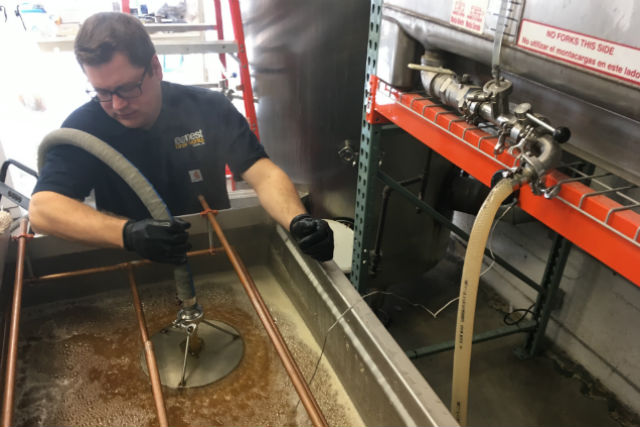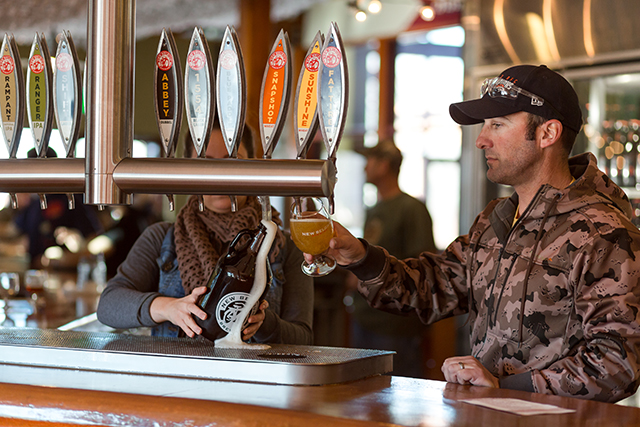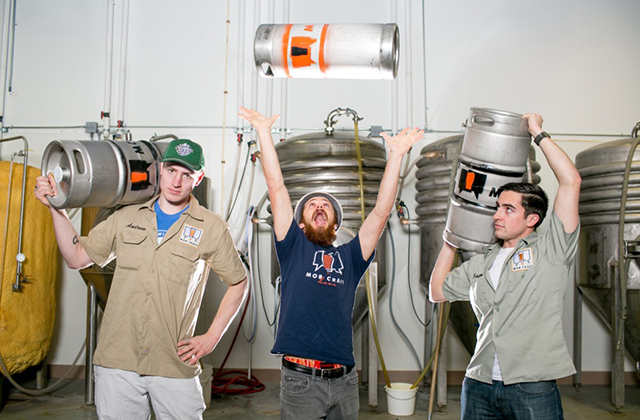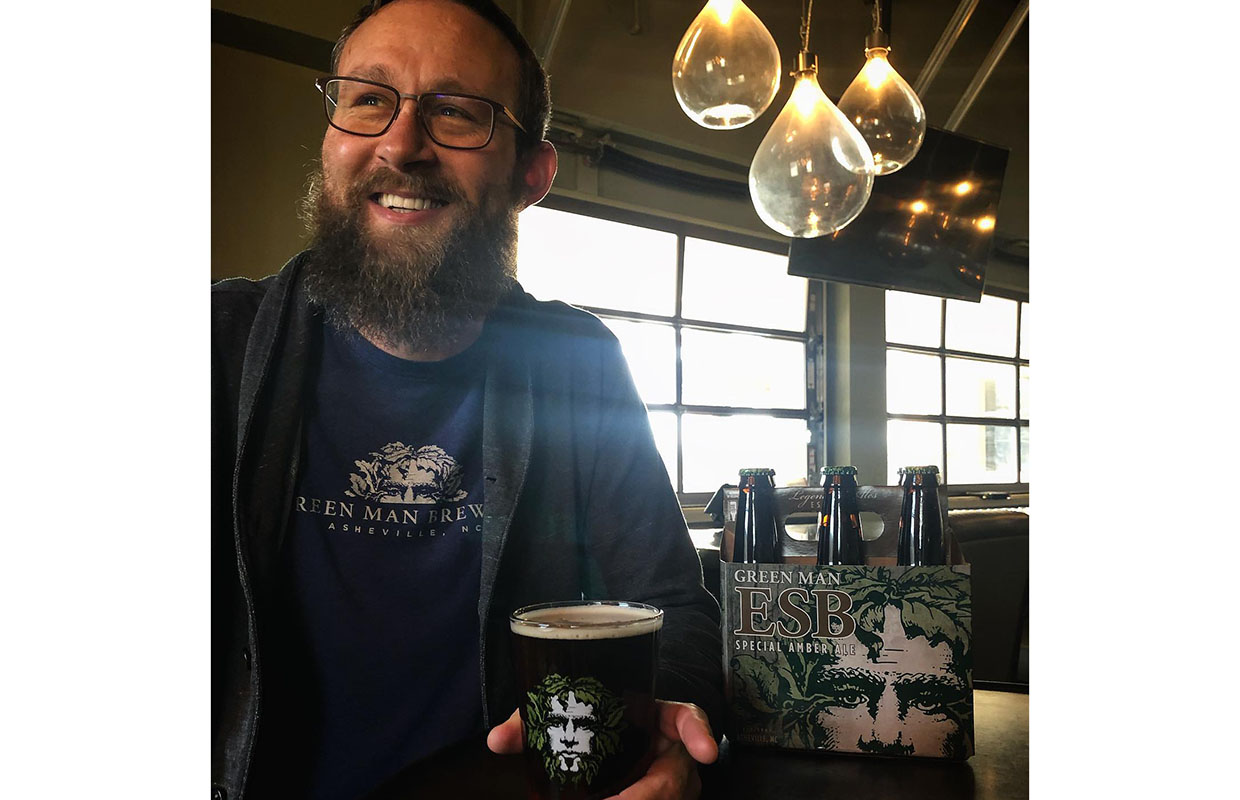
Opening a brewery can mean possibly a large debt for founders. Life savings are sunk into these projects and borrowing money from friends and family usually also include bank loans to build capital. But for Keefe Snyder and Scot Yarnell — the co-founders of Toledo, Ohio’s Earnest Brew Works — going through banks was not a part of the plan from the start.
The two friends who met through a local homebrewing club and opened Earnest in late 2016 are headed into 2018 on a slow growth track that will eventually double the size of their facility, all while never taking out any bank loans.
“We are moving as fast as we can, which is slow,” Yarnell admitted despite making nearly 500 barrels in 2017 after a business plan projection of about 360 for the first full year of operations. “But we have a plan for every square inch of this building. It will happen as quick as it happens. We will not artificially grow any faster than we can.”
Snyder said they have looked at where they want to be growth-wise and maximize that growth, noting that the planning will see the brewery add mostly capacity and storage to the additional 2,500 square feet they began renting next door in an adjacent unit six months after opening. “We just bought a chiller for the largest size we can get here, so we are set for as big as we can get in the building ever. That was Step 1,” he said. “Once that was sourced, it was knowing our restrictions, such as knowing we didn’t want to replace the ceiling. We also didn’t want to get past the size of a fermentor where we would need four batches to fill it either, and we want to have the variety we have on tap now. Not just in the taproom but for outside customers as well.”
That meant picking 20-barrel tanks, which will be added as funds allow.
“We wanted the ability to scale our operation so we wouldn’t have to scale up our brewing equipment right away,” Snyder said of picking a 7-barrel system made from mostly retro-fitted parts minus a new kettle. “We know we are going to double and triple batch on this equipment someday. So we wanted to set ourselves up to go through a nice growth spurt. We think with the site we are at, we can brew 8-12 times a week on the system we have.”
Yarnell said when the duo started planning to open, they tried to think of every expense they would have and countered that by under projecting how much beer they would sell. That nearly ‘worst-case scenario’ helped the co-founders understand a proper course that would keep them going. It meant not taking an income for themselves while still paying a few part-time employees they needed along with making sure they were able to pay back the money they borrowed from friends and family, plus interest, to specified terms of agreement.
Over the first year, the expenses they planned for weren’t as high as expected and the projected amount of beer they planned to make and sell grew, giving them a positive cash flow quickly. It’s not copious amounts they noted, but it has helped the brewery grow one project at a time.
“It’s been six months and all some people may only see that we dug a trench drain so far,” Yarnell said, noting that the brewery has worked on smaller projects, such as re-framing a part of the building for garage doors, adding proper lighting and HVAC systems along with a cold storage area that is still in the process of being hooked up.
“Yeah, we could have done the whole thing in two months but we would have had to take on a loan, gotten a general contractor in there, but we want to do the work ourselves and we are more comfortable doing things that way than taking out a big loan,” Yarnell said. “We can’t come up with all that money at once. And we are proud of that.”
Other additions done over the year have been adding taps, building a patio and adding the garage doors to where the tank farm will be. It’s all planned for the future of the building, not for immediate use, that someday could hit a capacity of 3,500-5,000 barrels.
“There are no specific plans put in place to sort the funds for the expansion,” Snyder said. “We are just keeping to a budget and watching our bottom line in regards to other expenses.We have a comfort zone and as long as we don’t get outside of that, then we wait. Taproom sales have been able to give us a nice cushion to play with the expansion without having to take on additional debt. And we are happy with it.”
Yarnell said one shocking accomplishment for the brewery is making two private label beers for the the Tony Packo’s group of restaurants — a longtime and well-established brand in the Toledo area that was made famous nationally by actor Jamie Farr in the 1970s TV show M*A*S*H.
The brewery is still taproom focused, but has been able to grow a small group of accounts for distribution. Selling from over the bar means more margins for the brewery and those margins mean more cash flow to fund the next project, no matter how major or minor it is.
“We would rather focus, not on the numbers of capacity, but rather the additions we can have,” Snyder said. “Barrel storage, it will be small, but it will add value for our regular customers. We don’t want to maximize each square inch, but we do want to play with those numbers. We will find a happy medium.”






Be the first to comment